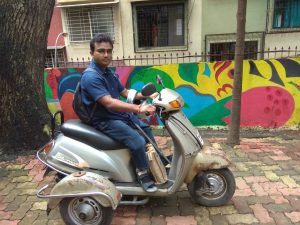

The Equals, unlike other NGOs, is an organization which focuses on advocacy issues related to people with disabilities. They function as a facilitator between the government and people with disabilities by making them aware about the policies while understanding the challenges faced in their day to day lives to help the government in developing policies customized to their needs.
In 2016, The Disabilities Act was revised to enable more equality for the differently abled. Among the other reforms, two major changes include – recognition of new categories of disabilities and, revisions in policies to ensure inclusiveness. It was two years since the enactment of the new policies and Equals wanted to assess the impact of the changes in policy by evaluating the extent of awareness of the Disabilities Act among the differently abled and their experience about exclusiveness and discrimination.
The research was delivered pro bono to Equals, under the banner of The Community Program (TCP) of the Market Research Society of India (MRSI). The TCP is MR industry funded, with mentoring and research time, volunteered by research practitioners with an objective to make professional research accessible to NGOs that cannot typically afford it.
This study was conducted by me, Divya Meenakshy, a volunteer researcher from Brandscapes Worldwide. I conducted Qualitative interviews among the people with disabilities/guardians and NGOs supporting the cause. The first set of interviews was with people with different disabilities to assess their level of awareness while the second set of interactions was with the NGO managers to understand their perceptions and solution directions that they perceived as important in the current scenario.

I used Qualitative (In-depth interviews) because:
– It helped with meeting people in their comfort zone considering the sensitivity of the topic and make the respondent comfortable emotionally to be able to talk to me
– Each disability is different, and hence the approach to them had to be different. This was only possible through a qualitative exercise.
The center chosen was Mumbai, Maharashtra State, as it has one of the highest numbers of disabled in India and usually, a large city like Mumbai is where most legislations are generally first implemented.
The research helped in qualifying areas that Equals need to focus on the bring about the desired change along with a professional report that would help Equals to have a fact-based conversation with the policy makers and implementers.
The research focus on three key areas of policy, namely Medical, Education and Employment and these were assessed for awareness, accessibility and actionability – Aware of the policy and the change introduced; Able to Access all the information related to policy/scheme and finally, If they were able to see it come to Action for themselves in their interactions.
Through this research, it was found that awareness was not an issue but accessing and exercising the policies by the disabled was the major concern.
For example, in education, “Right to education” is known to all. However, when it comes to actual implementation – infrastructure isn’t disable-friendly and learning aids are not easily available which in turn hampers their learning process.
The clear direction was to focus on not just the policy but work towards creating infrastructure, for example learning aids for the differently abled to be made available at educational institutions. It was understood that across all three areas of policy researched, limited and accessible information sources and inadequate infrastructure were impediments to policy implementation.
Organizations like Equals help in bridging the gap between the disabled groups and the government. Through this research, Equals and in turn the government would be able to identify the challenges at ground level and thus define actions that are fit to purpose. It is a long way before we become a society that creates equitable opportunities for the differently abled.
An eye-opening fact which I’ve discovered during the research is that while newer buildings require by law ramps for wheelchairs, and are provided in newer shopping malls or other institutions, they are not constructed according to the measurements for a wheel-chair to access! I personally would not have known this to be a challenge as this seemed to be an area where the implementation rates of policy were high.
My hope is that through this research work we have enabled Equals to have a conversation with stakeholders on the need for creating not just the policy but to work towards making it accessible and actionable at an everyday level. I hope too that the MRSI through TCP will initiate more similar work in the coming years and drive change for the society one step at a time.
This research for Equals is one small step in the right direction.
About the Author:
Divya Meenakshy, Manager Insights, Insights Division, Bradscapes Worldwide
